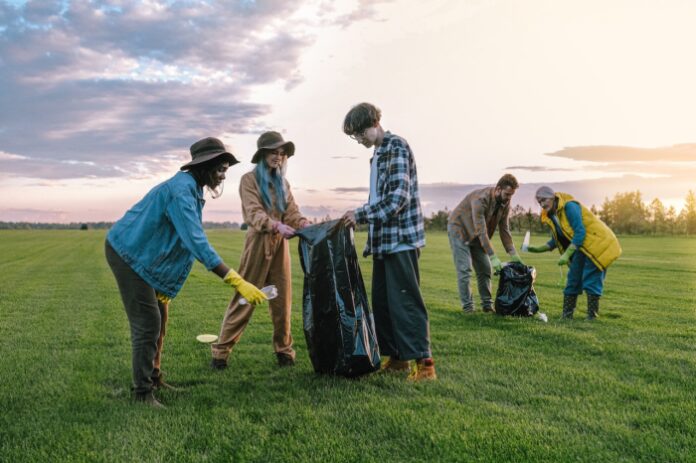by Ibi Montesino, Executive Vice President, Distributor and Customer Experience and Chief of Staff, Herbalife Nutrition
The world has learned many lessons from the pandemic. One of the most important is the role that local communities serve in helping to bridge isolation, form relationships, grow businesses, contribute to ending food inequity, and support education. The value of community lies in the connections we form that root us in our neighborhoods. By investing in our communities and being active participants, we build bonds of belonging.
Education
The lifeblood of every community is education. A strong school system creates an educated workforce, but it also helps to ensure the vibrancy of future generations. Education provides students with the life skills and information they need to succeed, especially as we live in an interconnected and technology-rich world. Research has shown that over 40 years, income per capita is 23 percent higher in a country with equal education. Access to education is one of the most potent tools to lessen the impact of poverty and reduce economic inequality.
As a business owner or CEO, one of the most important things you can do for your business is to continue investing in your own continued education. Evidence shows that Education provides entrepreneurs with the cognitive skills to better evaluate and take advantage of entrepreneurial opportunities, increase the level of self-confidence, and reduce perceived risks. This can come from general education, or even just participating in industry-related events and seminars to keep you on top of what’s trending in your field.
Connection
Communities give people a sense of belonging. Being part of a group of neighbors eases isolation, builds bridges, and fosters an understanding of others. By prioritizing connecting with your community, the greater your chances of growing your customer base and in turn, your chances for success. The insights you can learn from your customers is invaluable, whether it’s feedback on your service, what you can improve on, or what you may be able to offer that is new. Even trusted peers or mentors in your own industry can help you navigate challenges that can bloom into lucrative opportunities or efficiencies. Connections strengthen not only our relationships but our health as well. Studies have shown that strong social connections can increase longevity by 50%. Social relationships give people a sense of purpose, deepen ties with their neighbors, and strengthen neighborhoods.
Service
Whether you are an individual, social group, or corporation, giving to others, or even better supporting your own employees, is not only the right thing to do, but it also drives stronger connections with others. Food banks sent out urgent requests for donations to support those who lost their incomes or financial providers during the pandemic. In 2020, it was estimated that one in six children was facing hunger in the United States, and globally, according to Feed the Children, one in nine of our neighbors lacks the food they need to thrive.
Acceptance
Strong communities allow residents to learn from others in their town or city. Working and living alongside other people — many of whom may be outside your social circle — creates moments where a group of strangers comes together to make their community stronger. The result is meeting people of all ages, lifestyles, and careers — and opening our minds and hearts to new ideas and a broader sense of acceptance.
Expand
If you are a businessperson, engagement in your community can also benefit your career. You can connect with local leaders and potential consumers as not just a salesperson but as a neighbor. People can meet in low-pressure environments and learn about one another, building relationships and allowing business owners to share information about their services or products that directly meet that individual’s needs. Working alongside others in your community on a project to build your neighborhood expands your network and increases your chances for business success.
A thriving community takes care of its residents’ education, health, and welfare and creates opportunities for neighbors to know, learn from, and support each other. Relationships fuel people’s sense of belonging and develop new prospects for businesses to flourish. Being a good neighbor means doing what you can to help your community, which is the lifeblood of a thriving economy and the fabric of a nation, thrive.
Find a Home-Based Business to Start-Up >>> Hundreds of Business Listings.

















































